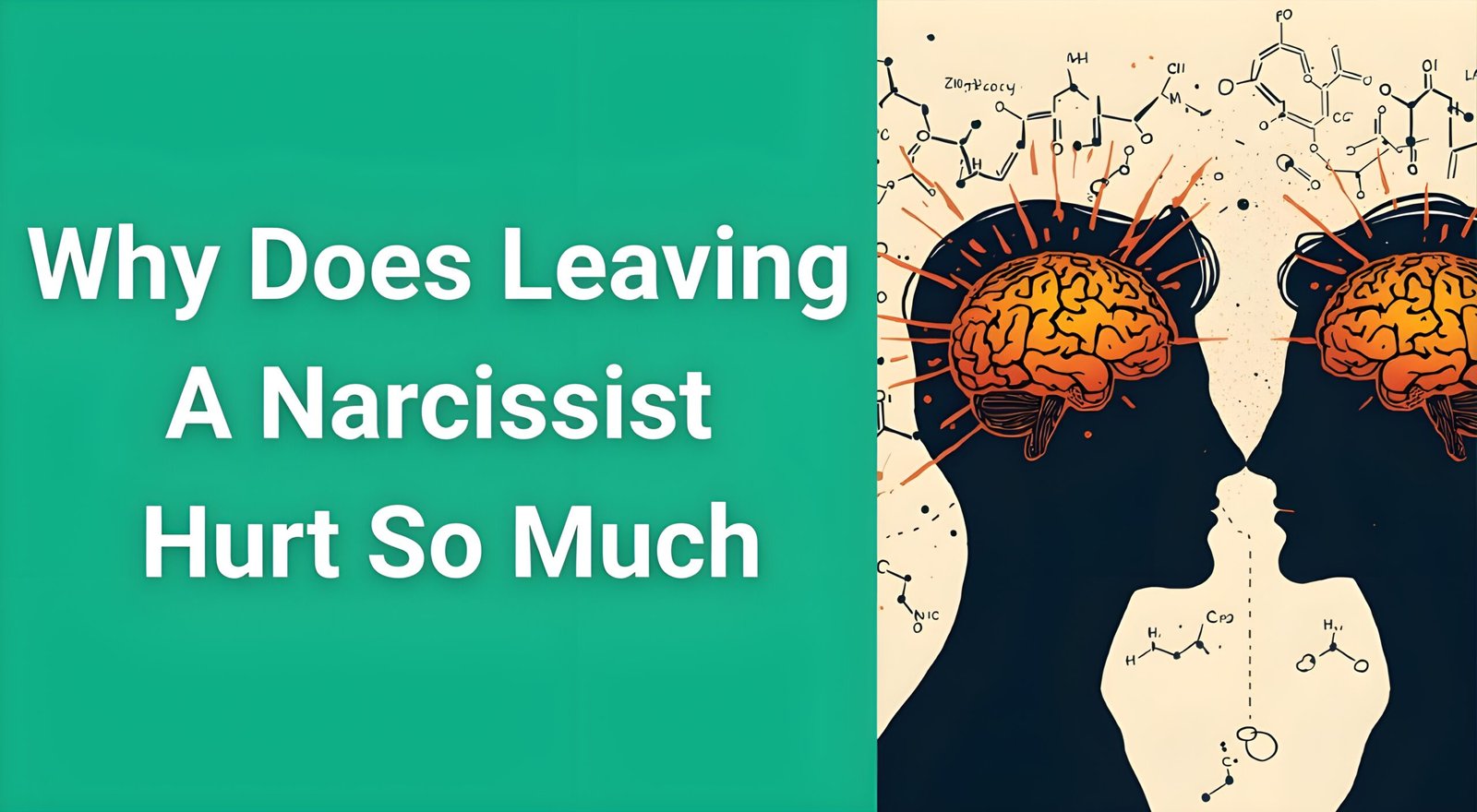That gnawing feeling in your stomach when you wake up, knowing today might be the day you finally say “enough.” The exhaustion of walking on eggshells, the confusion of questioning your own reality, the overwhelming fear of what comes next. If you’re reading this, you’ve likely reached that pivotal moment where staying strong when leaving a narcissist feels both impossible and absolutely necessary.
- Understanding Why Staying Strong When Leaving a Narcissist Feels Impossible
- The 12 Essential Strategies for Staying Strong When Leaving a Narcissist
- What to Expect When You Start Staying Strong and Leaving
- Special Considerations: When You Can’t Leave Immediately
- Breaking the Trauma Bond: A Science-Based Approach
- Creating Your Personal Strength Inventory
- The Role of Boundaries in Staying Strong
- Building a Safety Plan
- The Recovery Journey: What Comes After
- Common Mistakes That Weaken Your Resolve
- When Professional Help Becomes Essential
- Frequently Asked Questions
- Conclusion: Your Strength Is Greater Than You Know
The journey of leaving a narcissistic relationship is one of the most challenging experiences you’ll ever face. Unlike ending a healthy relationship, staying strong when leaving a narcissist requires strategic planning, emotional fortitude, and an understanding of what you’re truly up against. This isn’t just about breaking up—it’s about breaking free from psychological chains that have been carefully constructed over months or years.
Understanding Why Staying Strong When Leaving a Narcissist Feels Impossible
Before we dive into the survival strategies, it’s crucial to understand why this process feels so overwhelming. Narcissistic relationships create what experts call “trauma bonding“—a psychological attachment that forms through cycles of abuse and affection. Your brain has literally been rewired to crave their approval, making the act of leaving feel like withdrawing from an addiction.
The confusion you’re experiencing isn’t weakness—it’s the result of systematic psychological manipulation. Gaslighting has made you question your own perceptions, while love bombing followed by devaluation has created an emotional dependency that feels impossible to break.
The 12 Essential Strategies for Staying Strong When Leaving a Narcissist
1. Recognize the Trauma Bond (The Foundation of Your Strength)
Understanding trauma bonding is the first step toward freedom. This isn’t love—it’s a neurological addiction created by intermittent reinforcement. When you understand that your attachment isn’t based on genuine connection but on psychological manipulation, you begin to reclaim your power.
Action Step: Write down three instances where you felt confused about their behavior—moments when their words didn’t match their actions. This reality check becomes your anchor when doubt creeps in.
2. Build Your Support Network Before You Need It
Isolation is the narcissist’s greatest weapon. They’ve likely systematically driven wedges between you and your support system. Rebuilding these connections isn’t just helpful—it’s essential for your survival.
Strategy: Start with one trusted person. You don’t need to reveal everything immediately. Simply reconnecting and sharing that you’re going through a difficult time creates a foundation for future support.
3. Document Everything (Your Truth Protection System)
Gaslighting makes you question your own memories and experiences. Documentation serves as your reality anchor and potential legal protection.
What to Document:
- Text messages and emails
- Dates and details of abusive incidents
- Financial irregularities
- Threats or intimidation tactics
- Witnesses to their behavior
Pro Tip: Keep this documentation secure and accessible only to you. Consider cloud storage with strong passwords.
4. Develop Your Exit Strategy (The Tactical Approach)
Staying strong when leaving a narcissist requires strategic planning. Impulsive decisions often lead to being drawn back in or facing dangerous retaliation.
Essential Components:
- Financial independence: Separate bank accounts, important documents secured
- Safe housing: Whether with family, friends, or alternative arrangements
- Legal consultation: Especially crucial if children or significant assets are involved
- Timeline: Gradual preparation is often safer than sudden departure
5. Master the Grey Rock Method (Your Emotional Armor)
When complete no-contact isn’t possible immediately, the Grey Rock method protects your emotional energy. Become as interesting as a grey rock—boring, unresponsive, and unrewarding to engage with.
Implementation:
- Short, factual responses only
- No emotional reactions to their provocations
- Discuss only necessary logistics
- Avoid sharing personal information or feelings
6. Prepare for the Extinction Burst (The Storm Before Freedom)
When narcissists realize they’re losing control, their behavior often escalates dramatically. This “extinction burst” is actually a sign that your strategies are working—they’re desperate to regain control.
Expect:
- Love bombing attempts (“I’ve changed,” “I’ll do anything”)
- Threats and intimidation
- Involving mutual friends or family
- Financial manipulation
- Legal threats or actions
Remember: This intensification is temporary. Staying strong during this phase is crucial—giving in reinforces their behavior and makes future attempts even more difficult.
7. Protect Your Children (If Applicable)
If you share children with a narcissist, their safety and wellbeing become paramount concerns. Narcissists often use children as weapons or sources of ongoing control.
Protective Measures:
- Document any concerning behavior toward the children
- Consult with a family law attorney specializing in high-conflict divorce
- Consider parallel parenting instead of co-parenting
- Ensure children have access to counseling
- Never badmouth the other parent, but validate children’s feelings
8. Establish Firm Boundaries (Your New Operating System)
Boundaries aren’t about controlling the narcissist’s behavior—they’re about defining what you will and won’t accept. This mental shift is powerful and necessary.
Boundary Examples:
- “I will not engage in conversations that involve yelling or name-calling”
- “If you threaten me, this conversation ends”
- “I communicate about our children only through email or a co-parenting app”
Implementation: Boundaries are only effective if you consistently enforce them. Prepare for pushback and testing.
9. Invest in Professional Support (Your Recovery Team)
A therapist experienced in narcissistic abuse understands the unique challenges you’re facing. They can provide strategies, validate your experiences, and help you process the trauma.
What to Look For:
- Experience with narcissistic abuse recovery
- Understanding of trauma bonding
- Support for your timeline and readiness
- Practical coping strategies, not just analysis
Sometimes professional analysis can provide the clarity and validation you need to move forward with confidence. Understanding exactly what manipulation tactics were used against you can be incredibly empowering.
10. Practice Radical Self-Care (Rebuilding Your Foundation)
Narcissistic relationships systematically erode your sense of self-worth and self-care. Reclaiming these practices isn’t selfish—it’s essential for your recovery.
Self-Care Strategies:
- Physical: Regular exercise, nutritious meals, adequate sleep
- Emotional: Journaling, meditation, creative expression
- Social: Reconnecting with friends, joining support groups
- Spiritual: Whatever brings you peace and meaning
- Intellectual: Reading, learning, pursuing interests they may have discouraged
11. Prepare for the Long Game (Marathon, Not Sprint)
Staying strong when leaving a narcissist isn’t a one-time decision—it’s an ongoing commitment to your wellbeing. Recovery takes time, and that’s perfectly normal.
Timeline Reality:
- 0-3 months: Crisis management and stabilization
- 3-6 months: Establishing new routines and boundaries
- 6-12 months: Processing trauma and rebuilding identity
- 1+ years: Continued growth and prevention strategies
Understanding that this is a process, not an event, helps you stay committed during difficult moments.
12. Develop Future-Proofing Skills (Breaking the Pattern)
Breaking free from one narcissistic relationship doesn’t automatically protect you from future ones. Understanding red flags and healthy relationship dynamics is crucial.
Red Flag Recognition:
- Love bombing (overwhelming attention early on)
- Isolation tactics
- Gaslighting behaviors
- Boundary violations
- Excessive need for control or admiration
What to Expect When You Start Staying Strong and Leaving
Understanding what lies ahead helps you prepare mentally and emotionally for the journey.
The Initial Relief and Doubt Cycle
Many people experience an immediate sense of relief followed by crushing doubt. This emotional rollercoaster is normal and temporary. Your brain is adjusting to life without constant hypervigilance.
The Smear Campaign
Narcissists typically launch what’s called a “smear campaign”—telling everyone who will listen that you’re the problem. They may claim you’re unstable, vindictive, or abusive. This is projection and manipulation designed to isolate you and draw you back.
Response Strategy: Don’t defend yourself publicly. The people who matter will see through the manipulation over time.
Financial and Legal Challenges
If you shared finances or have children together, expect attempts to use these as control mechanisms. Having legal and financial support in place before you need it is crucial.
The Hoovering Attempts
Named after the vacuum cleaner, “hoovering” refers to the narcissist’s attempts to suck you back into the relationship. These attempts can be romantic, threatening, or pitiful—whatever they think will work.
Stay Strong: Remember that any response—positive or negative—gives them the attention they’re seeking and encourages more attempts.
Special Considerations: When You Can’t Leave Immediately
Sometimes staying strong when leaving a narcissist means acknowledging that you can’t leave right now—and that’s okay. Whether due to financial constraints, child custody concerns, or safety issues, you may need survival strategies while you’re still in the situation.
Survival Mode Strategies:
- Minimize confrontation without sacrificing all boundaries
- Build resources secretly and safely
- Connect with professional support
- Document incidents for future reference
- Develop safety plans for escalation
- Focus on protecting your mental health
If you find yourself in this situation, remember that preparing to leave safely is still taking action toward your freedom.
Breaking the Trauma Bond: A Science-Based Approach
The trauma bond created in narcissistic relationships functions similarly to addiction. Your brain has been conditioned to crave their approval through intermittent reinforcement—a powerful psychological mechanism.
Breaking this bond requires understanding that:
- Willpower alone isn’t enough
- The physical and emotional withdrawal is real
- Structured daily practices can rewire your brain
- Recovery is possible with the right approach
Many survivors find that understanding the neurological aspects of trauma bonding helps them approach recovery with more compassion for themselves and more realistic expectations about the process.
A structured 30-day approach to breaking trauma bonds can provide the daily framework needed to create lasting change. This isn’t about willpower—it’s about consistent daily practices that literally rewire your brain’s response patterns.
Creating Your Personal Strength Inventory
Narcissistic abuse systematically attacks your sense of self-worth and competence. Creating a personal strength inventory helps you remember who you are beyond this relationship.
Exercise: Write down:
- Three challenges you’ve overcome in your life
- Five personal qualities you’re proud of
- Two accomplishments that had nothing to do with the narcissist
- One dream or goal you had before this relationship
Keep this list accessible for moments of doubt or manipulation attempts.
The Role of Boundaries in Staying Strong
Boundaries are often misunderstood as attempts to control others. In reality, boundaries are about defining what you will accept and what actions you’ll take if those limits are crossed.
Effective Boundary Setting:
- Be clear and specific
- Focus on your actions, not their behavior
- Expect testing and pushback
- Follow through consistently
- Don’t over-explain or justify
Example: Instead of “You need to stop yelling at me,” try “I end conversations when voices are raised. I’m hanging up now and we can try again tomorrow.”
Building a Safety Plan
If you’re in a relationship with a narcissist, having a safety plan isn’t paranoia—it’s wisdom. Even if you never need to use it, having a plan increases your confidence and sense of control.
Basic Safety Plan Elements:
- Safe places to go in an emergency
- Important documents stored securely outside the home
- Emergency cash or resources
- Trusted contacts who know your situation
- Code words to signal help is needed
- Legal resources and documentation
The Recovery Journey: What Comes After
Staying strong when leaving a narcissist is just the beginning of your recovery journey. Understanding what lies ahead helps you stay motivated during difficult moments.
Phase 1: Stabilization (First 3-6 months)
- Establishing safety and no-contact
- Basic self-care and routine building
- Processing immediate trauma and confusion
Phase 2: Integration (6 months to 2 years)
- Deeper trauma processing
- Rebuilding identity and self-worth
- Developing healthy relationship patterns
Phase 3: Growth (Ongoing)
- Using your experience to help others
- Continued personal development
- Maintaining vigilance without paranoia
Common Mistakes That Weaken Your Resolve
Understanding these common pitfalls helps you avoid them:
Mistake #1: Trying to get closure or make them understand Reality: Narcissists don’t provide closure. You create your own closure by moving forward.
Mistake #2: Believing you can “fix” them or the relationship Reality: You cannot heal someone who doesn’t acknowledge they need healing.
Mistake #3: Minimizing the abuse once you’re safe Reality: Abuse amnesia is common. Keep your documentation to remind yourself why you left.
Mistake #4: Rushing into another relationship Reality: Healing takes time. Rushing into new relationships often leads to repeating patterns.
Mistake #5: Isolating yourself completely Reality: While solitude is healing, complete isolation can become unhealthy. Balance is key.
When Professional Help Becomes Essential
While many aspects of recovery can be self-guided, certain situations require professional intervention:
- Immediate safety concerns
- Severe depression or anxiety
- Substance abuse as a coping mechanism
- Suicidal thoughts
- Complex legal or custody issues
- Inability to function in daily life
Don’t view seeking help as weakness—it’s a sign of strength and self-advocacy.
Frequently Asked Questions
Q: How long does it take to feel normal again after leaving a narcissist?
A: Recovery is individual, but most people see significant improvement within 6-12 months with proper support. Full recovery can take 2-3 years, and that’s completely normal.
Q: Will the narcissist ever leave me alone?
A: Most narcissists eventually move on to new sources of supply, especially when they realize their former targets won’t respond to manipulation. Maintaining no-contact consistently is key to speeding this process.
Q: How do I know if I’m really being abused or if I’m just too sensitive?
A: If you’re questioning your reality, walking on eggshells, or feeling like you’re losing yourself in the relationship, these are red flags regardless of how others might label the behavior.
Q: Can a narcissist change with therapy?
A: While personality disorders can be treated, it requires the person to acknowledge the problem and commit to long-term therapy. Most narcissists don’t seek treatment willingly or sustain it if court-ordered.
Q: What if we have children together?
A: Parallel parenting (minimal communication focused only on children’s needs) is often more effective than traditional co-parenting. Document everything and prioritize your children’s safety and emotional wellbeing
Q: How do I rebuild trust in my own judgment?
A: Start with small decisions and acknowledge when your instincts prove correct. Work with a therapist who understands narcissistic abuse to process the gaslighting and rebuild confidence in your perceptions.
Conclusion: Your Strength Is Greater Than You Know
Staying strong when leaving a narcissist isn’t about being perfect or having all the answers from day one. It’s about taking one step at a time, honoring your own timeline, and refusing to accept less than you deserve.
You’ve survived 100% of your difficult days so far. The skills that got you this far—your resilience, your capacity for love, your ability to hope—these are the same strengths that will carry you through this transition and into a life of authentic peace and joy.
The path forward isn’t easy, but it’s worth it. Every day you choose your healing over their chaos, you reclaim a piece of yourself. Every boundary you maintain, every manipulation you don’t respond to, every morning you wake up and choose yourself—these are acts of profound courage.
Your life is waiting for you on the other side of this decision. You are stronger than you know, braver than you feel, and more deserving of love and respect than you’ve been led to believe.
The journey of staying strong when leaving a narcissist is ultimately a journey back to yourself—and that person is worth fighting for.
**Remember: You’re not leaving because you’re weak. You’re leaving because you’re finally strong enough to know you deserve better






